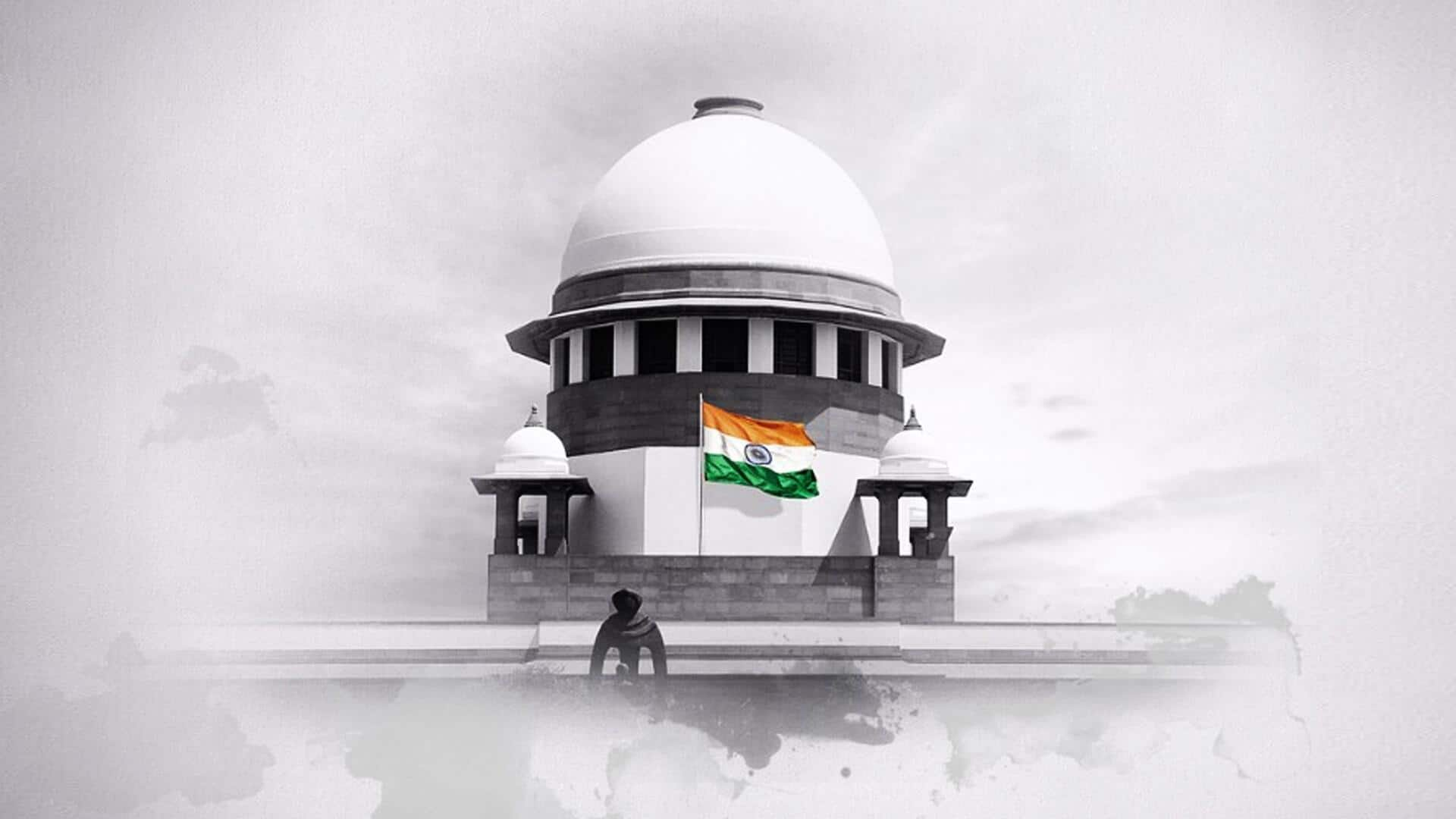
SC to hear pleas against new EC law on Friday
What's the story
The Supreme Court on Wednesday agreed to hear on Friday (March 15) a clutch of petitions challenging the Centre's appointment of election commissioners (ECs) under a new law. The petitions, moved by the Association for Democratic Reforms (ADR) and Madhya Pradesh Congress leader Jaya Thakur, were mentioned before an SC bench on Tuesday. Notably, a high-level committee led by Prime Minister Narendra Modi is expected to convene this week to nominate new ECs.
Context
Why does this story matter?
Arun Goel's sudden resignation as an EC on Saturday has left the Election Commission of India with only one member—Chief Election Commissioner Rajiv Kumar. This further exacerbates the existing vacancy created by Anup Chandra Pandey's retirement in February. To recall, Goel had initially opted for voluntary retirement on November 18, 2022. But he was appointed as an EC until December 2027. His appointment had faced scrutiny in the Supreme Court.
SC's past ruling
SC's previous directive on ECI appointments
Under the new law, the selection panel led by PM Modi consists of a Union minister, and the Leader of the Opposition (LoP). Previously, the SC had recommended that the panel should have the Chief Justice of India (CJI) as a member. In response to a writ petition last March, the SC ruled that the President of India should appoint the CEC and ECs based on recommendations from a panel comprising the PM, the LoP, and the CJI.
Last year
Controversy surrounding new legislation
Last year, the Centre brought the new Chief Election Commissioner and Other Election Commissioners (Appointment, Conditions of Service and Term of Office) Act, 2023, which replaced the CJI with a Union minister. Opposition parties and other critics argued that this change allows the government to exert control over the poll body. Goel's resignation, just days before the election panel was set to announce the Lok Sabha election schedule, marked the second resignation by an EC under Modi's administration.
Petition in court
What does ADR's petition in the SC say
According to Live Law, the ADR plea challenged the constitutionality of Section 7 of the new law before the SC and sought an urgent hearing. The provision lays down the process for the appointment of the CEC and other election commissioners. Advocate Prashant Bhushan, counsel representing the non-profit, mentioned the plea on Tuesday before the bench of Justices Sanjiv Khanna, Dipankar Datta, and Prashant Kumar Mishra, requesting an urgent hearing. However, the bench refused to entertain the request.